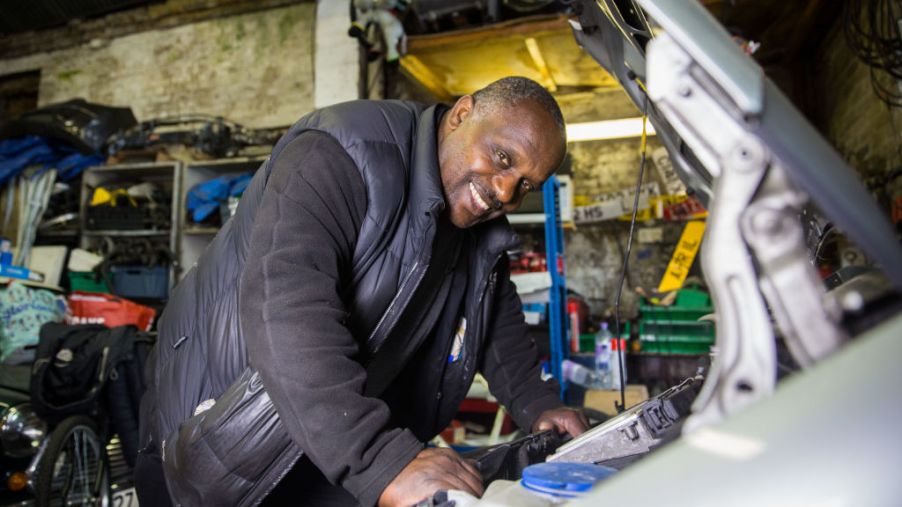
5 Things Your Mechanic Wishes You Knew
You and your mechanic may not be friends, but he or she is likely the first person you turn to when your car stops working. Mechanics have to put up with a lot from drivers. If you stopped to ask, they’d probably give you some pointers. These are the top five things your mechanic wishes you knew. Following these suggestions will make both of your lives easier.
1. Don’t ignore your warning lights
We’ve all seen those pesky alerts illuminate our dashboard and figured, “I can wait a couple of days before checking it out.” Your mechanic wants you to stop waiting. The reality is that your warning light is doing its job. Something in your car needs attention right now.
When you continue driving with a warning light on, you’re potentially doing considerable damage to your car’s engine or other essential components. You could easily avoid these things by just bringing your car in to be checked by a professional.
2. Don’t bring your own parts to the auto shop
This is equivalent to bringing boxed hair dye and your kitchen scissors to the hair salon. It’s just unacceptable and actually kind of rude. Yet, according to Family Handyman, “Customers often buy auto parts online and ask the shop to install them for only the cost of labor.” This can hurt your relationship with your mechanic or auto shop. “When you bring your own parts, you’re asking the shop to sacrifice a portion of their profit.”
Not only is this unfair to ask, but there are also downsides to doing so. Unless you have experience with cars, you may not order the correct part or fit for your vehicle model. Plus, if the part you bring in fails while under warranty, the shop won’t cover the cost of additional service because the part wasn’t provided by them.
If you’re absolutely set on bringing your own parts, make a polite call to your auto shop first and ask if they’ll install them and at what cost. But it’s usually better for both parties to avoid this scenario entirely.
3. Don’t ignore unusual noises, smells, or stains on your driveway
The car is still running, so what’s the problem? Well, that unusual noise, smell, or stain on your driveway is coming from somewhere, which is also likely the location of the problem. While your car may be running now, it could stall on the highway, putting you and your car in danger.
Unusual noises and smells are almost always a sign of a larger issue. A burning smell often indicates that fluids are leaking onto a hot engine or exhaust component and that you’re driving with low fluid levels. This can cause anything from engine failure to a fire that could destroy your car and put your life at risk.
Similarly, Family Handyman warns that “large wet oily stains on your driveway are a sign that an engine, power steering, brake or transmission seal or gasket is leaking and that the fluid is probably low.” Again, low fluid levels can cause engine, transmission, and power steering overheating and failure. Nip the problem in the bud before it becomes serious and potentially life-threatening.
4. Don’t DIY when you really shouldn’t
Yes, we can all google “how to replace brake pads,” but does this mean we should? If you’re attempting a DIY project that impacts some of your car’s most important parts, and you have little to no experience, think again before you begin. You could easily cause more damage than it’s worth and end up paying out of pocket to fix what you’ve unknowingly broken.
Can you change your air filter? Sure. Replace your wiper blades? Have at it. But if you’re considering fixing or replacing something that requires more than ten steps and a bunch of tools you don’t even have, give your mechanic a friendly call. Let him or her give you advice, and if they tell you that your car is better off at the shop, trust them.
5. Don’t wait too long for routine maintenance
Waiting too long for routine maintenance is an easy fix that drivers tend to ignore. Car owners should also have an owner’s manual that contains important information about how often routine maintenance is needed.
Your mechanic would like you to read the manual and follow its guidelines about routine maintenance checks. Otherwise, you’re driving an overstressed car and potentially doing serious damage to its essential parts. Carve out some time each month to perform any routine maintenance you can do from home. When it’s time, bring your car into the auto shop. You won’t regret it, and neither will your mechanic.


